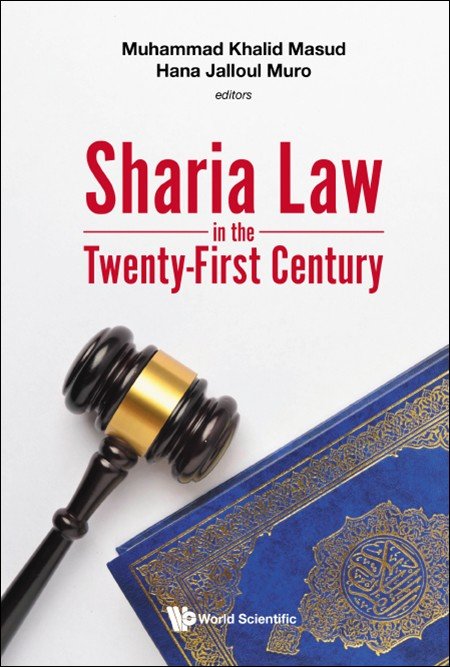Sharia Law in the Twenty-First Century consists of concise, detailed analytical studies on current critical discussions of Sharia in the Western and Muslim legal traditions. Contributors to this volume are well-known academics in their fields and have been at the forefront of critical studies on various aspects of Islamic law. Breaking new ground for understanding the dynamics of law and society, most contributors in this volume have influenced current academic discourse on Sharia.
The chapters contained within this volume find that globalism and Sharia have been posing challenges to one another. These respective challenges are studied from the perspectives of theory, history and the diverse contexts in which Sharia developed during the twenty-first century. The approach in this book is overall contextual with reference to time and place. For accessibility, unlike other books on Islamic law, Sharia Law in the Twenty-First Century has minimal footnotes and reduced diacritical marks, but offers an essential glossary in an appendix.
Sample Chapter(s)
Introduction
Chapter 1: Contesting Sharia in Postcolonial and Geopolitical Contexts
Contents:
- About the Editors
- About the Contributors
- Introduction
- Theoretical Perspectives:
- Contesting Sharia in Postcolonial and Geopolitical Contexts (Abdullahi Ahmed An-Na'im)
- Between Separation and Unity: The Interplay of Law and Morality in Islamic Jurisprudence (Mohammad Hashim Kamali)
- Sharia and the Capabilities of the Soul in Mulla Sadra's Early Thought (Rula Jurdi Abisaab)
- Islamic and Christian Theology in Legal Hermeneutics: In Search of a Theology of Law (Julio César Muñiz Pérez)
- Historical Perspectives:
- Legal Authority and Interpretation in Islamic Law (Knut S Vikør)
- Fiqh and Legislation in the Middle East and Africa (Delfina Serrano-Ruano)
- The Politics of Torture (Kathleen A Cavanaugh)
- The Islamic Institutions: Role and Application (Hana Jalloul Muro)
- Contextual Perspectives:
- The Moroccan Family Law between Tradition and Modernity (Mohammad Dahiri)
- The Place of Religious Law in Western Societies (Mathias Rohe)
- God as Sovereign; Sovereign as God: An Archaeology of the Iranian Constitution (Fatemeh Sadeghi)
- Private Inequality and Public Religion: A Comment on Shayara Bano, India's Triple Talaq Decision (Vrinda Narain)
- Constitutionalism and Sharia in Pakistan: A Debate on the National Narrative and the Identity of the State (Ana Ballesteros Peiró)
- Learning from the Sharia Debates (Muhammad Khalid Masud)
- Glossary
- Index
Readership: Advanced undergraduate and graduate students, researchers and practitioners in the fields of Islamic history, religion and law.
Muhammad Khalid Masud, MA and PhD (McGill), is presently an Ad Hoc judge, Shariat Appellate Bench, Supreme Court of Pakistan (2012–). Formerly, he has been Academic Director, International Institute for the Study of Islam in the Modern World, Leiden, The Netherlands (1999–2003), Distinguished Visiting Professor, Kulliyah of Laws, International Islamic University, Kuala Lumpur (2003), Chairman, Council of Islamic Ideology, Government of Pakistan (2004–2010), and Director General, Islamic Research Institute, International Islamic University, Islamabad (2011–2013). His major publications include Shatibi's Philosophy of Islamic Law (1977), Iqbal's Reconstruction of Ijtihad (1995), Islamic Legal Interpretation: The Muftis and their Fatwas, co-edited with Brinkley Messick and David Powers (1996), [Editor] Travelers in Faith, Studies of Tablighi Jama'at as a Transnational Movement for Renewal of Faith (2000), [Translator] Dini akhlaqiyat ke Qur'ani Mafahim, Urdu Translation of T Izutsu's book Ethical Terms in the Qur'an (2005), [Translator] Nuqush-e Tagore, Rabindra Nath Tagore's, Fireflies (2012), Dispensing Justice in Islam, Qadis and Their Judgments, co-edited with David S Powers and Ruud Peters (2006), [Editor] Atharwin sadi 'isawin men islami Fikr ke rahnuma (2008), Islam and Modernity, An Introduction to Key Issues and Debate, co-edited with Armando Salvatore and Martin van Bruinessen (2009), Shari'a Today, Essays on Contemporary Issues and Debates in Muslim Societies (2013, 2019), and Freedom of Expression in Islam: Challenging Apostasy and Blasphemy Law, co-edited with Lena Larsen, Kari Vogt, and Christian Moe (2021).
Hana Jalloul Mur earned a PhD at the Universidad Complutense of Madrid in the International Relations and International Public Law Department. She studied a Master's degree on European Union and International Relations. She has been a Junior Expert on two European Commission projects in Lebanon for over three years. She worked as a Political Assistant: European Union Election Observation Mission for the Parliamentary Lebanese Elections 2009. She has been a lecturer, teaching in the dual Bachelor's in International Studies–Politics: Political Theory and Ideologies, Introduction to Politics and Political Analysis I, Department of Social Sciences, at University Carlos III. She has been a lecturer at the University of Nebrija till June 2019, teaching The European Union: Culture, History and Institutions. She has taught International Terrorism: Master's in Geopolitics and Strategic Studies at University Carlos III and Comparative Politics at Carlos III University for postgraduate students, till February 2020. She then worked as an adviser in the technical cabinet of the Delegate of the Government in Madrid till last May 2019. Between 26th May–28th February 2020 she was appointed as deputy (MP) in the Assembly (Parliament) of the Community of Madrid. Since February 2020 she has been appointed Secretary of State for Migration of the Government of Spain. Most of her publications and conferences are related to migration issues, prevention on radicalization, Islamic law, moderate and radical Islamism, deconstruction of jihadist narratives and international politics. She left the Secretary of State to be a deputy in the Madrid parliamentary elections, celebrated on 4th May, 2021.
She developed her field of work for her thesis dissertation interviewing prominent religious and political figures such as Omar Bakri, Sheikh Hassan al-Turabi, Sayyed Hassan Faddlalah, Shaikh Smi Khadra, Fathi Yaken and many others in Lebanon, Egypt and Sudan.




